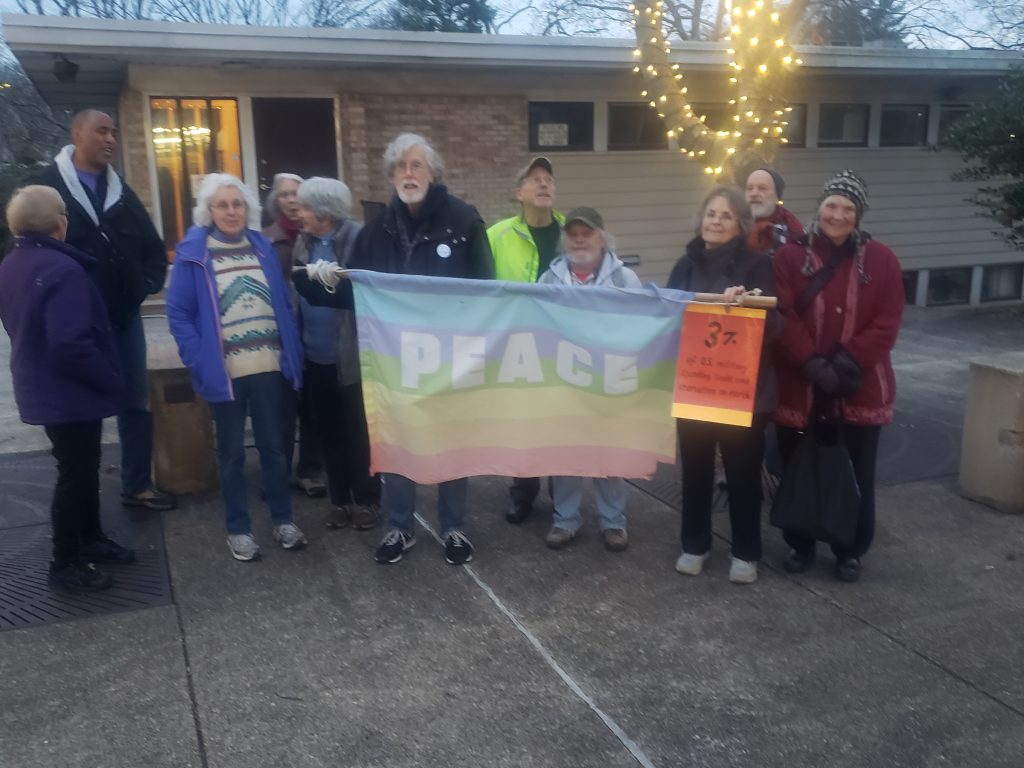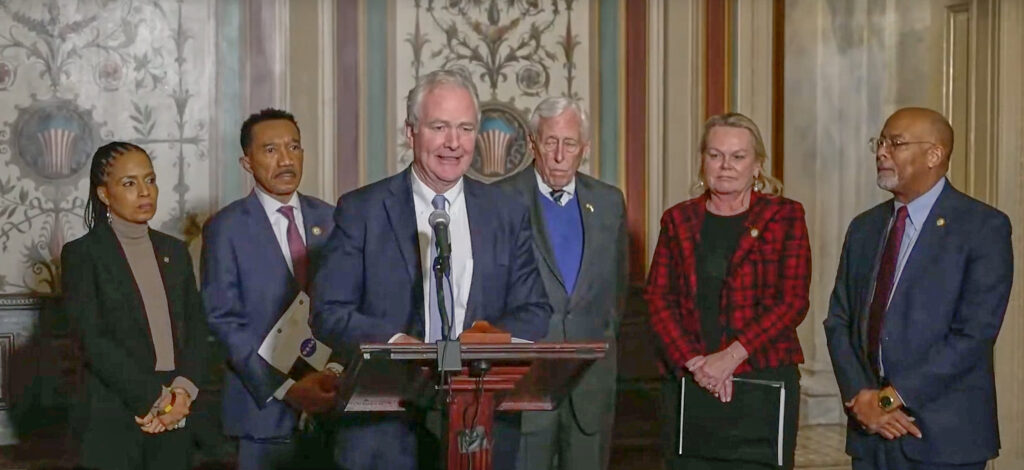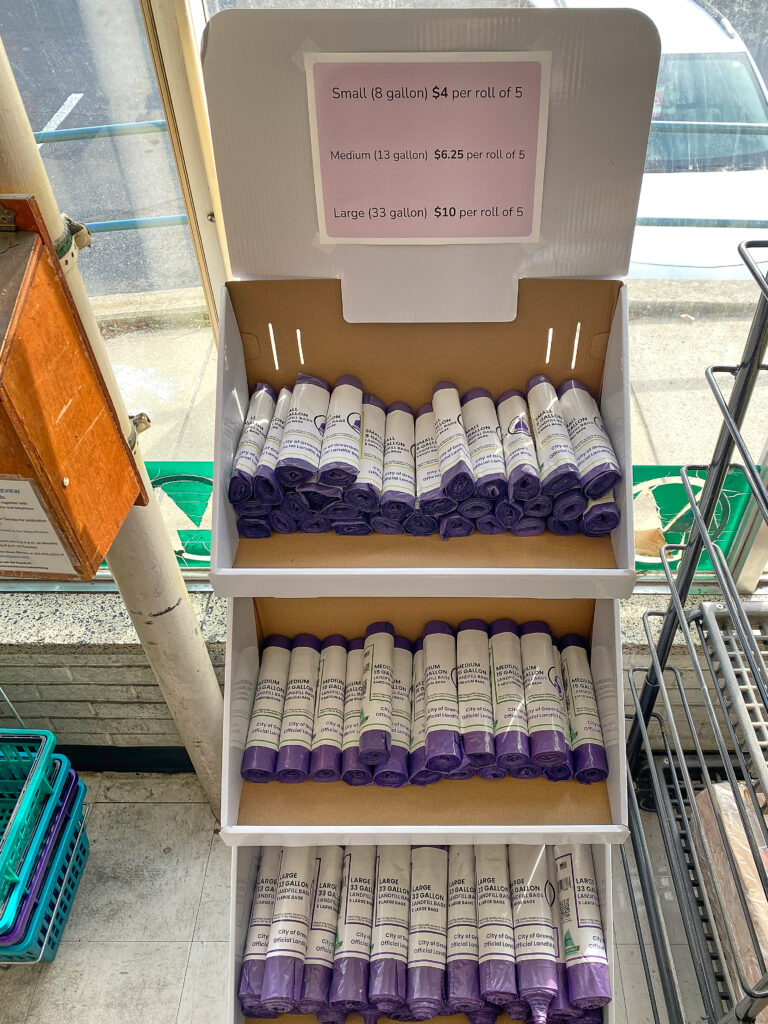With a light snow falling, over 70 people, including more than a dozen Greenbelters, gathered in the courtyard outside the Maryland District, Southern Division, Federal Courthouse on Cherrywood Lane on January 8 to support refugees seeking to settle in the U.S. Vigil attendees carried signs, chanted slogans including “No hate, no fear, refugees are welcome here” and listened to remarks from more than a dozen speakers representing a variety of national and international immigration and refugee aid groups. Many of the people who stood in freezing temperatures for the hour-long vigil had religious affiliations, including Lutherans, Presbyterians, Christian Church (Disciples of Christ), Roman Catholics and the Franciscan Action Network, the Rabbinical Assembly, Jewish Council for Public Affairs, the Washington Council for Secular Humanist Judaism, the Interfaith Immigration Coalition and Disciples Refugee and Immigration Ministries. Greenbelter Marjorie Gray attended the vigil after seeing a notice on the Concerned Greenbelt Women’s Facebook page. She stated, “I’ve been privileged here in Maryland to know refugees and immigrants from many countries.” Gray appreciated the various signs people carried at the vigil, especially one advocating for refugee women and girls. Local writer Robin Hawley Gorsline said of the occasion, “I was grateful to have the opportunity to testify to the reality that those who arrive on our shores bring wisdom, energy, ingenuity, courage, intelligence and determination, all qualities we need more of rather than less.” The courtroom, presided over by U.S. District Judge Peter J. Messitte, filled with refugee advocates and spilled into overflow rooms, as plaintiffs sought a preliminary injunction against the September 2019 Executive Order on Enhancing State and Local Involvement in Refugee Resettlement, which requires documentation of “local consent” when national resettlement agencies seek to place vetted and approved refugees in homes and communities around the country. Nine resettlement agencies act in accordance with the United States Refugee Act of 1980 to find homes in the U.S. for people who have been granted refugee status due to persecution. Judge Messitte heard arguments from attorneys representing the U.S. government (the defendant) and plaintiffs including the Hebrew Immigrant Aid Society, Church World Service and Lutheran Immigration and Refugee Service, represented by the International Refugee Assistance Project. The judge, a 1993 Clinton appointee, was critical of the government attorney’s arguments and seemed to agree with the plaintiffs who argued that the Executive Order was “arbitrary and capricious” and that it posed an undue burden on resettlement agencies to obtain and document consent from the many hundreds of localities around the country where 30,000 refugees were placed last year. The judge asked the plaintiffs to draft a sample injunction by the end of the week, indicating a judgment would soon be issued. The resettlement agencies are facing a January 21 deadline to document local consent for refugees arriving later this year. News outlets including the Washington Post and the Wall Street Journal (WSJ) covered the hearing. According to the WSJ, opposition from some states to refugee resettlement grew when Syrian refugees were placed. “Governors from 31 states asked the Obama administration for permission not to accept Syrian refugees to their states, which the administration denied. Indiana, under then Governor Mike Pence, moved to unilaterally ban Syrian refugees, but the effort was blocked by federal courts” (WSJ, January 8, 2020). A spokeswoman at the vigil from New American Economy, Mo Kantner, cited statistics from their June 2017 report, noting that “Three and a quarter million refugees arrived between 1975 and today. Refugees pay tens of billions of dollars in taxes each year, becoming entrepreneurs, founding companies, buying homes and earning their U.S. citizenship “at notably high rates.”




